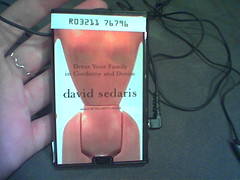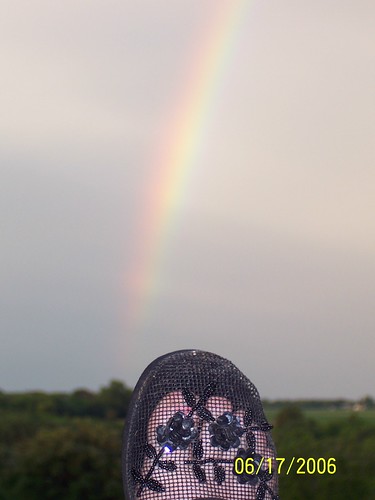Blink III (The final post)
Although Malcolm Gladwell left off at this point and did not really go into more ways in which we can use the power of "thin-slicing" as he calls the quick, unconscious analysis that often proves more accurate than conscious analytic thought, I continued thinking about it. If reading about Martin Luther King before taking a Race IAT has an effect, how many other things we do have an effect (positive or negative)? I thought about how the idea of "Experience Building" activities form our unconscious and how in this regard every piece of information we see and read and absorb is just like the old adage of "you are what you eat" except it would be what you see, or do, or experience...And thinking that perhaps we should be that much more careful about what we're feeding ourselves.
Obviously I'm not out reading vicious hateful things, but what AM I reading? And I'm not out purposefully looking to experience the type of things that would make me think poorly of other races, religions, or groups of people or doing things to promote prejudice & bias. But what experiences, and what books, and what things am I doing that counteract all of the things I inadvertently experience, and see, and hear, and learn that might be counter to what my conscious mind would believe?
Other "Blink" studies showed how thinking of being a professor for 10 minutes before an academic test actually improved scores, and for African American students answering questions about race reduced them. Many studies have shown that "thinking smart" and being in the right mood or mindset can effect behavior and abilities: just like how priming a student to be patient had them waiting 10 minutes for test results How could I put myself in the right "mindset" everyday while counteracting negative or false biases set in my subconscious?
------
So in thinking about these things I came to an idea...not a conclusion, or necessarily a course of action...just an idea. I came to think about the many discussions I have had with many people over the course of many years about religion: organized religion, disorganized religion, belief in God, belief in Spirituality, and Atheism. Although most the atheists I've known have simply said they don't believe in religion because they don't believe in God, every other conversation has had to do with why people believe what they believe and why they DON'T believe in something else.
But this is my idea: based on all the evidence shown in "Blink" about Priming, thin-slicing, and rapid cognition, there is value to religion or at least religious activities whether you believe in the Prophet's social teachings or not. Most religions are based on simple, basic, and often universal spiritual laws which encompass living an "ethical" or "moral" life. The core value of "do unto others..." is present in almost all religions, as are beliefs about living a virtuous, humble, loving, kind, and generous life. Most religions believe in daily prayer, meditation, and reading of the holy book of that religion as well as outside activities to promote a better society. IF you then apply the concept of priming and of "experience building", you would figure that a person who daily reads (priming) about virtue and morals and treating others kindly and spends time acting on those beliefs (experience building) while involved in their religion's community, they would be led to act and behave in a way that is more in tune with their conscious ethics & beliefs. They would have had more experiences of the behaviors associated with the positive beliefs, and would have more primed bias towards thinking in a loving, kind, humble and generous manner after reading their religious writings each day than someone with the same basic ethical beliefs but without the daily ritual practice of these beliefs.
Just a thought....a very long thought, but it was quite interesting to me.
Visit my other blog here
Labels: americans, change, learning, Religion, theories, values








